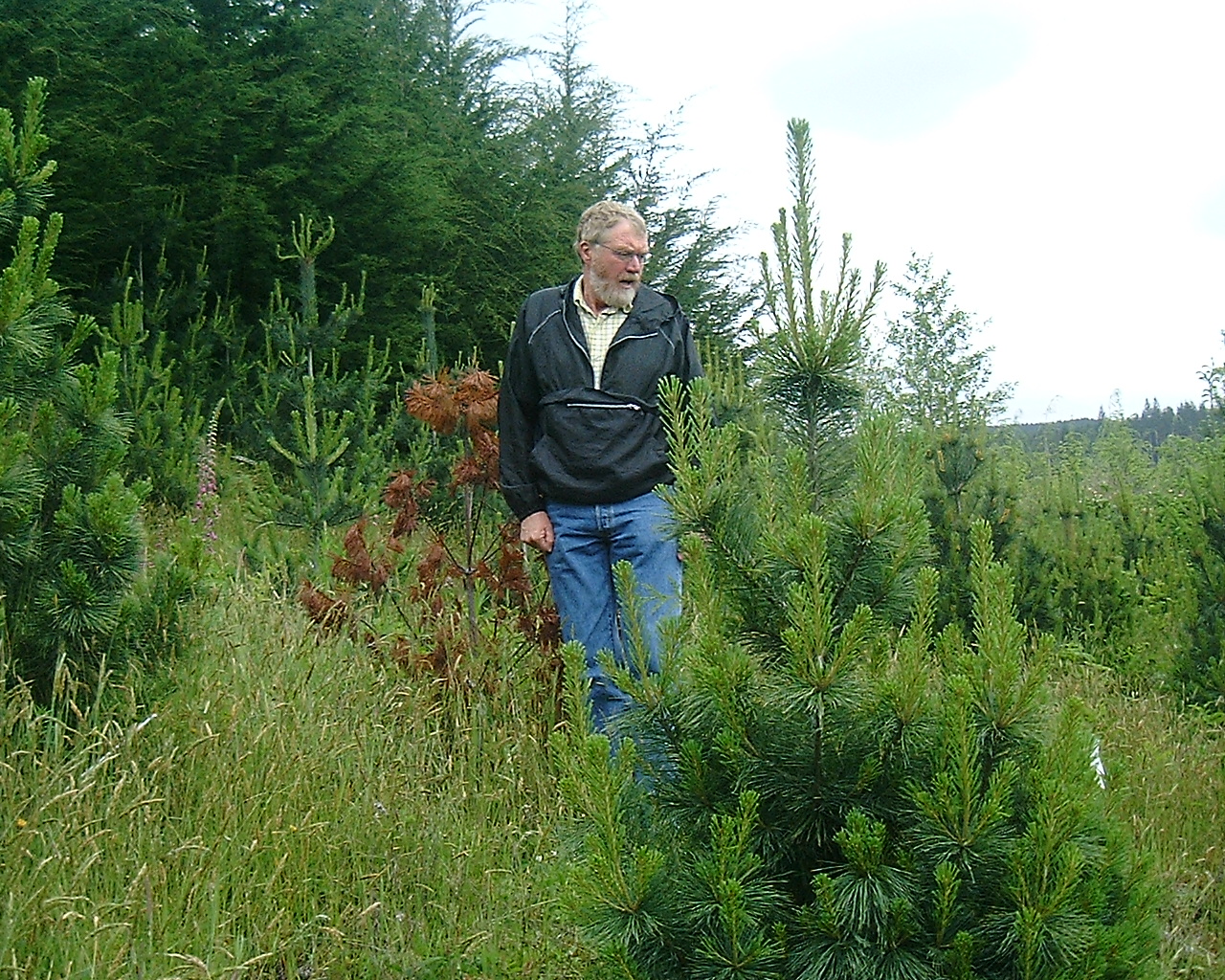Western white pine tree breeding program
The main focus of the western white pine breeding program is to breed disease resistance for a fungus called white pine blister rust.
The pathogen was introduced to North America from Eurasia in the early 20th century. It has a complex lifecycle with alternating spore stages and multiple hosts. The alternate hosts are various species of currants (Ribes) which pass on the infection to trees. The rust has devastated populations of western white pine which once dominated the landscape in Idaho and the southern interior of B.C. and was a minor component of stands on the coast.
The breeding program is divided into two zones: one that services the west coast and one that services the interior of British Columbia east of the Coast Mountains. Close to one million seedlings are planted annually, all of which come from seed produced in seed orchards.

A government research scientist in a western white pine realized gain blister rust resistance trial, near Jordan River, B.C.
